Understanding the Chinese Birth Chart: A Deep Dive
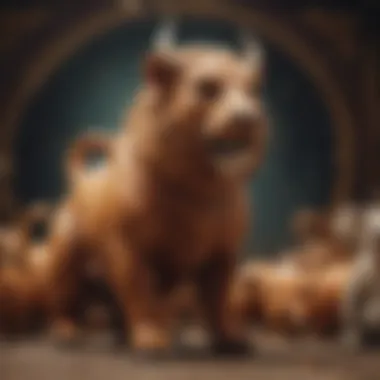

Intro
Embarking on the journey through the Chinese birth chart requires more than just a cursory glance at the symbols and their meanings. It's a tapestry woven with threads of ancient wisdom, reflecting the nuances of personality and destiny. The significance of understanding one's birth chart in this context cannot be overstated. Each individual is not merely a product of their environment but a complex interplay of celestial influences that shape their very essence.
Central to this exploration is the Chinese Zodiac, which consists of twelve animal signs, each imbued with distinct traits that resonate throughout a person's life. This system is underpinned by the concepts of yin and yang, along with the five elements—Wood, Fire, Earth, Metal, and Water. Together, these elements provide a profound framework for interpreting character and predicting life paths.
Moreover, the implications of delving into the birth chart transcend mere curiosity. They offer insights not only into personal relationships and health but also extend to professional aspirations and life choices. This guide aims to illuminate these connections, offering both novices and seasoned astrologers a comprehensive toolkit for interpretation. With this knowledge, you'll uncover the intricate layers that define your existence in this vast cosmos.
As we delve deeper into the aspects surrounding the Chinese birth chart, let's begin with an exploration of the unique characteristics associated with each Zodiac sign.
Prelude to the Chinese Birth Chart
In the rich tapestry of Chinese culture, the birth chart serves as a profound tool for understanding not just oneself but also one's place in the grand scheme of life. As we explore this topic, it becomes clear that the Chinese birth chart is not merely a collection of symbols and numbers but a deeper reflection of various elements that influence our very essence.
Overview of Chinese Astrology
Chinese astrology stands apart with its holistic approach, intertwining celestial movements and earthly elements. Rooted in thousands of years of tradition, it offers a distinctive perspective that emphasizes harmony and balance. The core tenet of this system revolves around the twelve zodiac signs, alongside the interplay of five elemental forces – Wood, Fire, Earth, Metal, and Water. Each zodiac sign and element reflects fundamental human traits and tendencies, providing an intricate interplay that shapes one's personality and life path.
Apart from the celestial aspect, Chinese astrology encapsulates philosophies like yin and yang, depicting opposing yet complementary forces. This dynamic nature of astrology captures both the complexity and simplicity of life – a duality often neglected in Western methodologies.
Significance of Birth Charts
The importance of birth charts in Chinese astrology cannot be overstated. They serve as an invaluable compass, guiding individuals through their life journeys with insight into character traits, compatibility in relationships, and even health aspects. A birth chart acts as a personal map, laden with potential and filled with revelations about one’s destiny.
Imagine walking through a forest without a map – difficult, right? The birth chart provides that much-needed direction. For instance, understanding one's dominant element could highlight certain weaknesses or strengths in health. Furthermore, it lays groundwork for deciphering interpersonal dynamics, whether in friendships, romantic relationships, or professional alliances.
In sum, the birth chart's significance lies in its ability to provide clarity. This clarity allows individuals to embrace their true selves, cultivate meaningful connections, and make informed decisions. Knowing how to interpret one’s birth chart opens doors to a more informed and oriented life, based on ancient wisdom that still holds relevance in today’s fast-paced world.
"Understanding yourself is the first step to understanding the world around you."
Whether you’re a seasoned astrologer or just dipping your toes into these waters, grasping the nuances of the Chinese birth chart promises enriching insights and more profound personal revelations.
Components of the Chinese Birth Chart
The complexity and richness of the Chinese birth chart hinge upon its central components. Understanding these elements provides a roadmap for those navigating through the intricate pathways of Chinese astrology. The interactions between the twelve zodiac signs, five elements, and the principles of yin and yang lay the groundwork for unique personality traits and life paths. By examining these components, one can gain insightful reflections on individual character, potential compatibility with others, and various life choices related to health and career.
The Twelve Zodiac Signs
The twelve zodiac signs in Chinese astrology represent the animals associated with each year in a repeating twelve-year cycle. Each animal carries distinct characteristics and influences that extend beyond mere personality traits; they also reflect broader themes in life experiences. Understanding these signs is an essential step for anyone eager to decode their own birth chart.
Rat
The Rat is characterized by resourcefulness and charm. They are quick-witted and often demonstrate an uncanny ability to adapt to various situations. In the scope of the birth chart, Rats tend to bring out innovation and creativity. This sign is popular for its determination; however, their tendency towards selfishness can sometimes cast a shadow on their strong will. A unique feature of the Rat is its keen intuition, which often leads them to identify opportunities that others overlook.
Ox
Oxen are known for their steadfastness and reliability. They are seen as hardworking and dedicated individuals, typically shunning frivolous pursuits in favor of practicality. Their strong ability to focus contributes to their success in various endeavors. Yet, the Ox can be inflexible, often finding it hard to adapt to change, which is where it may face challenges. The notion of being a slow burner is fitting, as they may take time to reach their potential but usually do so in a stable manner.
Tiger
Tigers embody bravery and enthusiasm. They tend to be natural leaders, driven by their passion and zest for life. This sign being vibrant attracts attention, often resulting in the Tigers getting involved in numerous undertakings. However, this can sometimes lead to inconsistency. The Tiger’s spirit of adventure is important in the context of this chart, as it can inspire others to take calculated risks while also being a source of tension due to impulsiveness.
Rabbit
Rabbits are the peacekeepers of the zodiac. Tender-hearted and kind, they often embody diplomacy and sensitivity. Their presence promotes harmony and patience, making them cherished friends. However, their aversion to confrontation might sometimes be a double-edged sword. While their gentle disposition is admirable, it may lead to situations where they appear indecisive or passive.
Dragon
In Chinese culture, Dragons are revered, symbolizing power and authority. Charismatic and ambitious, they often leave a lasting impression wherever they go. They are seen as high achievers, with a flair for the dramatic, but can sometimes come off as arrogant. Their unique strength lies in an unwavering confidence that can either empower or overwhelm those around them.
Snake
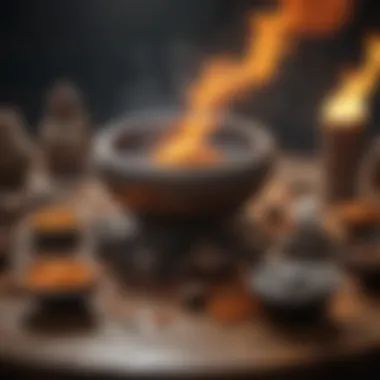
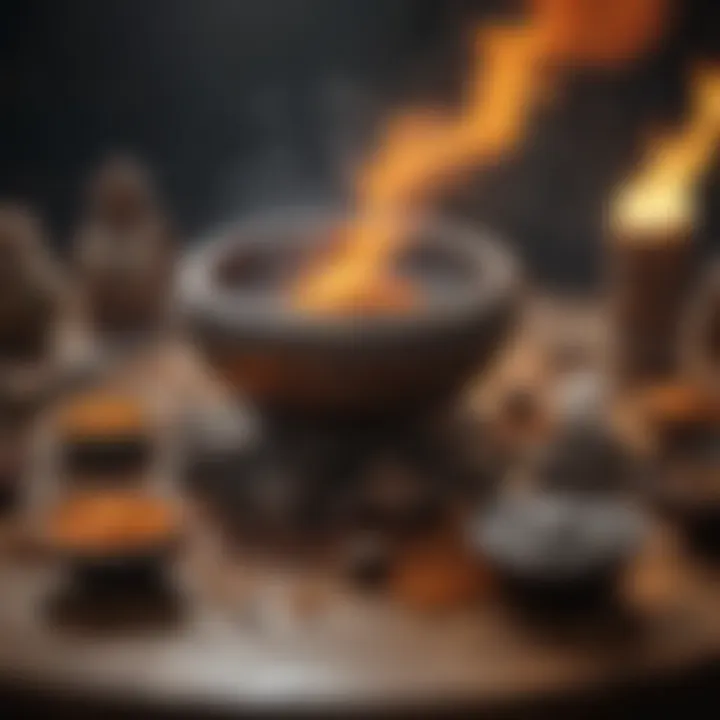
Known for their sharp intellect and deep understanding, Snakes are enigmatic creatures in the zodiac. They embrace mystery and require time for introspection. While they observe situations closely, their complexity can lead others to misjudge them. However, their ability to weave through life’s challenges is a notable trait, making them resourceful problem solvers.
Horse
Horses are lively and energetic, often characterized by their love for freedom. They usually thrive on adventure and new experiences, seeking out excitement in their lives. Despite this, horses can also seem restless or easily bored, which could hinder long-term commitments. The Horse’s vibrant spirit tends to inspire others to embrace spontaneity alongside them.
Goat
Creativity and gentleness define the Goat. With a penchant for artistry, they often find expression in various forms. Their compassionate nature attracts people and helps create deep connections. Nonetheless, the Goat can struggle with self-doubt, sometimes clouding their magnificent abilities. Accepting their unique qualities is crucial for them to flourish.
Monkey
Monkeys are spirited and clever, possessing an innate ability to charm others. Their playful nature often makes social interactions enjoyable, as they enjoy banter and lively discussions. However, they may also be viewed as mischievous or untrustworthy during pursuits that seem self-serving. Their intelligence is a notable asset, allowing them to navigate challenges adeptly.
Rooster
Roosters are the details people of the zodiac. Known for being punctual and observant, they often have a knack for organization. Their clarity and dedication to their endeavors make them reliable, though this could also make them appear critical or overly fastidious. Their keen attention can, however, lead the Rooster to immense success in their personal endeavors.
Dog
Loyalty and honesty are the trademarks of the Dog. Known for their commitment to friends and family, they often serve as the moral compass in their relationships. Dogs are considered trustworthy, but their inclination to worry can sometimes create unnecessary anxieties. Their genuine concern for others’ well-being makes them important companions.
Pig
Pigs are synonymous with generosity and a zest for life. They are sincere and enjoy celebrating the joys of living, attracting friendships through kindness. While they tend to be laid-back, this can sometimes be mistaken for laziness. Nevertheless, the Pig’s optimistic outlook can foster positivity in any environment.
The Five Elements
In Chinese astrology, the Five Elements framework provides an additional layer of depth to the analysis of the birth chart. These elemental forces—Wood, Fire, Earth, Metal, and Water—interact with the twelve zodiac signs to create a rich tapestry of personality attributes and life events. Each element has unique properties that influence characteristics and compatibility.
Wood
Wood represents growth and generosity. Those influenced by Wood are often noted for their compassion and creativity. They thrive in expansive environments and are excellent collaborators. However, they may sometimes struggle with taking a firm stand. The flexibility of Wood allows them to adapt but might lead them to drift away from their core beliefs at times.
Fire
Fire is synonymous with energy, passion, and transformation. It embodies assertiveness and confidence, often inspiring those around. Yet, its intensity can become overwhelming, leading to conflicts or hasty decisions. Individuals linked to Fire may excel in leadership roles, but they need to keep their tempers in check to ensure balanced interactions.
Earth
Earth signifies stability and nourishment, promoting reliability and practicality. Individuals influenced by Earth tend to be trustworthy and grounded, providing a sense of security to those around them. However, they can be resistant to change, potentially causing stagnation in both personal and professional growth. Emphasizing their flexibility can help balance their steadfast nature.
Metal
Metal symbolizes strength and resilience. Those aligned with Metal thrive in structured environments, often displaying a strong sense of justice. They are determined and hardworking, yet they could be perceived as rigid or overbearing. A feature of Metal is its ability to create boundaries, but one must be careful not to build walls that can isolate them from others.
Water
Water embodies fluidity and adaptability. It is ideal for those who navigate relationships and emotions adeptly. Individuals influenced by Water are often intuitive and empathetic, though they may struggle with indecisiveness. The key aspect of Water is its ability to flow, which can inspire harmony in interpersonal dynamics while also suggesting a need for clarity in purpose.
Yin and Yang Concept
The yin and yang concept is an essential tenet in understanding the balance vital in the birth chart. Yin, associated with femininity, mystery, and receptivity, contrasts with yang, representing masculinity, action, and light. Harmonizing these forces is crucial for prosperity and contentment in a person's life. This dynamic interplay helps to define personal experiences and relationships, guiding individuals toward optimal paths in the context of their birth charts.
How to Read Your Chinese Birth Chart
Reading your Chinese birth chart is akin to deciphering a personal roadmap to understanding oneself. It's not just about knowing what animal represents you or what element you belong to; it's truly an exploration of the inner workings of your character. This section provides key insights into the various elements of the chart and equips you with the tools needed to interpret your unique position within the framework of Chinese astrology.
Chinese astrology emphasizes that each component of the birth chart plays a significant role in shaping your life experiences. The intricate interplay between these components enables a deeper understanding of one's destiny, encouraging self-reflection and personal growth.
Understanding Your Zodiac Sign
Your Zodiac sign, dictated by your birth year, is the foundation of your birth chart. Each of the twelve signs has distinct characteristics, contributing to the broader tapestry of who you are. For instance, if you were born in the Year of the Rat, you might find that you hold traits such as intelligence, resourcefulness, and ambition. Conversely, if you're a Rabbit, gentleness, compassion, and sociability could define you.
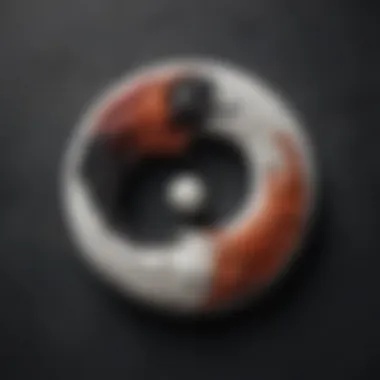

- Individual Traits: Reflect on how your personality aligns with the attributes of your zodiac sign. Are you smooth as silk like the Dragon or more grounded like the Ox?
- Interactions with Other Signs: Consider how your traits interact with those of others, illuminating your strengths and weaknesses in relationships and social settings.
This understanding helps you make informed choices in various aspects of life, from friendships to career paths. Knowing your sign empowers you to embrace your strengths while recognizing areas for growth.
Identifying Your Element
The Five Elements—Wood, Fire, Earth, Metal, and Water—play a crucial role in defining not just your personality traits but also your interactions with the world around you. Your elemental affiliation can uncover how you approach life challenges and goals. For example:
- Wood: Growth-oriented and adaptable, individuals with this element may find themselves continually striving for improvement.
- Fire: Fiery and passionate, those of this element often radiate warmth and enthusiasm, yet they must be cautious not to burn out.
- Earth: Grounded and practical, they embody stability but may struggle with rigidity.
- Metal: Those aligned with Metal are often disciplined and face the world with resilience but must beware of being overly critical.
- Water: Fluid and introspective, Water individuals excel in adaptability; however, they may find themselves overwhelmed with emotional currents.
Understanding your element cements your self-awareness and aids you in navigating decision-making and emotional responses.
Analyzing Yin and Yang Balance
At the heart of Chinese philosophy lies the principle of Yin and Yang—two opposing forces that exist in harmony. In your birth chart, the balance between Yin (feminine, passive) and Yang (masculine, active) dictates the nuances of your character and lifestyle.
- Self-Reflection: Assess where you find yourself leaning more. Are you energized like the Yang, or is there a pull towards the nurturing qualities of Yin?
- Adapting: Consider how adjusting your Yin and Yang balance can lead to enhanced well-being. Seeking activities that foster the opposite energy can cultivate a more holistic self.
Your journey toward understanding your Chinese birth chart is a continuous process; it’s a degree of self-exploration that feeds your psyche, paving the way to richer experiences.
Embracing these three aspects equips you with a comprehensive toolset that transcends mere curiosity. It's about mapping out your innate potential, enhancing your relationships, and ultimately steering your life toward fulfillment. By interpreting your chart with depth and honesty, you open doors to remarkable personal insights.
Cultural Context of Chinese Astrology
Understanding the cultural context of Chinese astrology is crucial for grasping the depth and richness of the Chinese birth chart. This astrological framework does not exist in isolation; rather, it is embedded within the historical, social, and philosophical fabric of Chinese civilization.
Historically, Chinese astrology has functioned as more than just a tool for predicting individual destinies. It is intertwined with Confucianism, Taoism, and Buddhism, each enriching the interpretations and applications of the birth chart. The beliefs and values of these philosophical systems reflect deeply in how different signs and elements interact with one another.
For instance, Confucianism emphasizes the importance of harmony in society, which is mirrored in the astrological principles of Yin and Yang. The balance of these forces can guide individuals toward not just personal insight but collective well-being as well. This suggests that astrology isn't merely a reflection of the self but a roadmap to navigate relationships and social dynamics.
Another key aspect to consider is the cyclical nature of time in Chinese thought, which starkly contrasts with linear Western perspectives. The lunar calendar, Twelve Zodiac, and Five Elements are interrelated, constantly informing each other. This cyclical view allows practitioners to see their charts as living documents—dynamic and responsive rather than static snapshots of fate. Such a perspective encourages adaptability and flexibility in how individuals engage with their astrological readings.
Besides its roots in historical philosophy, Chinese astrology has evolved through the ages. Today, as societies globally become more interconnected, there has been a resurgence of interest in traditional practices. This revival illustrates how the wisdom embedded in these birth charts can still be applied amidst modern life.
To put it simply, the cultural context of Chinese astrology offers a lens not only for understanding individual life paths but also for fostering community and societal bonds. It underscores the interconnectedness of all aspects of life, thus inviting practitioners to consider how their personal insights can stretch far beyond their own existence.
"In the realm of Chinese astrology, every stroke of fate is painted against the canvas of time, interwoven with the threads of human experience."
Historical Background
Chinese astrology traces its roots thousands of years back, emerging during the Xia Dynasty (2070–1600 BCE). It was during these early times that the foundational elements began taking shape. The zodiac signs, the Five Elements, and the Yin-Yang principle became essential components, influencing not just individual lives but the civilization as a whole.
Much of what we understand as modern Chinese astrology developed during the Han Dynasty (206 BCE–220 CE), a period marked by advancements in both philosophy and scientific thought. Scholars began formalizing astrological practices, aligning zodiac signs with various aspects of life such as health, relationships, and agriculture. Rituals became common, linking astrology with the agricultural calendar, demonstrating human reliance on celestial events for survival.
Modern Adaptations
Fast forward to the present, where technology and globalization have given rise to new interpretations and applications of ancient knowledge. In contemporary society, many people approach their birth charts with a sense of curiosity rather than solemnity. Apps and online platforms can generate personal charts in the blink of an eye, making this ancient wisdom accessible to anyone with a smartphone.
However, this shift does not dilute the significance of the origins. Recent adaptations are often seen through a lens of individual empowerment. Rather than just predicting outcomes, modern interpretations focus on self-discovery and personal growth. As a result, practitioners, both seasoned and novice, are more inclined to use their birth charts as a blueprint for navigating complexities in life like career choices, relationship dynamics, and health considerations.
In a world where many seek deeper connections in their lives, the cultural context of Chinese astrology serves as a fertile ground for exploration. This not only enriches personal experiences but also fosters an understanding of our interconnectedness in various forms.
Practical Applications of Birth Charts
The realm of Chinese astrology isn't just about predicting the future or tracing the paths of celestial bodies. The powerful insights gleaned from Chinese birth charts hold practical value across various aspects of life. With their intricate lattice of zodiac signs, elements, and yin-yang balance, these charts can provide guidance profoundly impacting relationships, career choices, and even health considerations. It’s not simply academic; it has a seismic effect on everyday decisions and life paths.
Finding Compatibility in Relationships
In a world where interpersonal connections shape our life experiences, understanding compatibility through birth charts can offer invaluable guidance. The Chinese Zodiac consists of twelve signs, each embodying distinct characteristics, strengths, and weaknesses. For instance, the carefree nature of a Horse may complement the meticulous approach of a Rat, creating balance in various types of relationships.
When analyzing relationship compatibility, one can consider the following:
- Zodiac Compatibility: Certain signs naturally align. An Ox may find comfort with a Snake, while a Monkey may clash with a Dog. Understanding these dynamics allows for more profound insights into relational harmony.
- Elemental Relationships: The five elements—Wood, Fire, Earth, Metal, and Water—interact in complex ways. A Fire individual paired with a Metal partner might encounter friction due to their elemental differences. However, if both partners possess a supporting element, like Earth, it can bridge gaps and foster understanding.
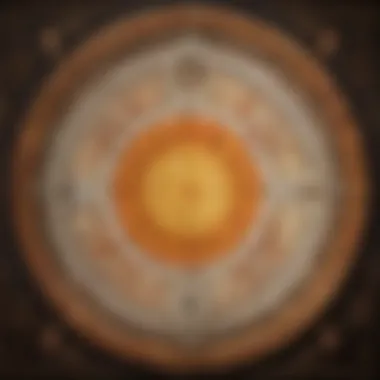
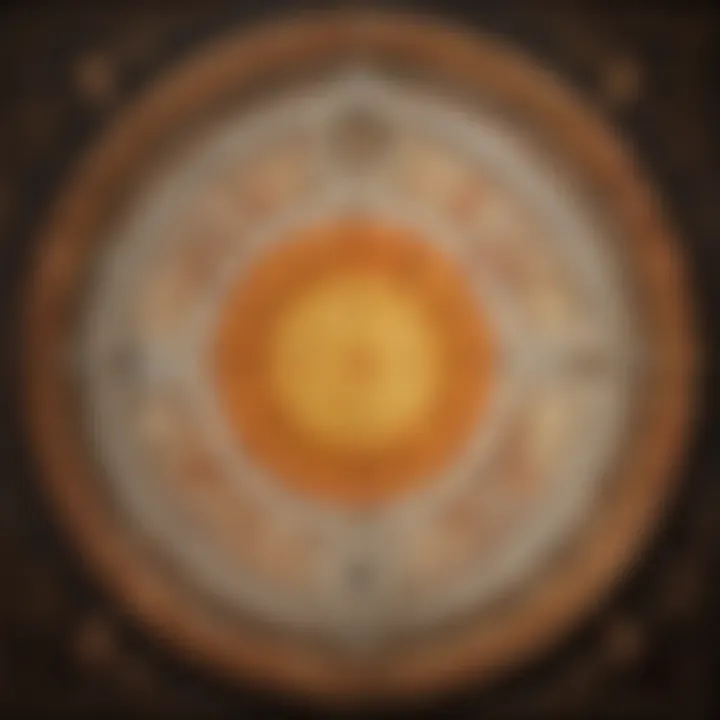
Combining these insights can lead to more informed decisions about who to maintain close relationships with, be it romantic partners, friendships, or even professional collaborations. As the saying goes, "it's not about finding the right partner, but being the right partner." Using birth charts as a reference can help individuals in manifesting a healthier relational environment.
Career Guidance Insights
Navigating career choices can be daunting. Here, a Chinese birth chart serves as an illuminating guide, revealing personal strengths and inclinations linked to one's element and zodiac sign. This can direct individuals toward suitable career paths aligned with their innate abilities and interests.
Considerations include:
- Elemental Influence: For instance, individuals with strong Water elements might excel in careers that require fluidity, creativity, and adaptability, such as the arts or counseling. Conversely, a prominent Earth element could indicate a knack for stability and practical professions, like accounting or architecture.
- Zodiac Traits: A Dragon's innate leadership abilities suggest roles in management or entrepreneurship, while a more subdued Sheep might find fulfillment in supportive positions or creative roles.
By examining birth charts closely, seasoned astrologers and beginners alike can glean insights into their potential career trajectories, equipping them to make more thoughtful and strategic choices that are both personally rewarding and strategically sound.
Health Trends and Considerations
Health is a multifaceted tapestry influenced by countless factors, including our natural dispositions as suggested by the birth chart. Recognizing potential health trends and considerations through astrological insights can be a proactive step toward better well-being.
Some points to consider include:
- Elemental Vulnerability: Different elements can imply various health predispositions. People with a strong Fire presence may need to watch for conditions related to overstimulation, while those grounded in Earth might have to be cautious of digestive issues.
- Yin and Yang Balance: A lack of balance can lead to various ailments, whether mental or physical. For example, individuals predominantly in the Yang spectrum may experience burnout without regular self-care routines. Recognizing these patterns through analysis can encourage healthier lifestyles and coping mechanisms.
Ultimately, employing Chinese birth charts to anticipate health issues or to make conscious lifestyle decisions provides a holistic approach to personal well-being, encouraging both prevention and reflection.
"Understanding yourself through the lens of your birth chart isn't just an exploration—it's a path to empowerment."
Incorporating practical applications of birth charts into daily life highlights the importance of deep, reflective insights while also fostering personal growth. It's a journey of self-discovery that allows each individual to tap into the profound wisdom embedded within the celestial maps of their lives.
Common Misconceptions
When diving into the world of Chinese astrology, one may find a kaleidoscope of interpretations and beliefs that often mislead the eager learner. This section aims to shed light on some prevalent misconceptions that can cloud one’s understanding of the Chinese birth chart.
Astrology vs. Astronomy
A common mix-up folks often make is between astrology and astronomy. While both deal with celestial bodies, the former is more about how those bodies influence our lives, and the latter focuses on the scientific study of them.
Astrology looks into the positions and movements of planets and stars to derive meaning that reflects back upon human experiences. It’s the art of interpreting the cosmos and correlating it to individual traits or events. Picture yourself looking at the night sky and pondering how the moon’s phase might affect your mood — that’s astrology in a nutshell.
On the flip side, astronomy is rooted in science, dealing with facts and data. It examines how stars are formed, their life cycles, and their distances from Earth. Think of it as the meticulous blueprint of the universe, where mathematicians and physicists converse in a language of numbers and measurements. These two disciplines, while intertwined in history, serve very different purposes.
Ultimately, understanding this difference helps one to appreciate the richness of astrology without having any false notions about its empirical validity.
Fate vs. Free Will
Another major misconception is the debate on whether we are guided by fate or if we carve our own paths through sheer willpower. It’s a compelling discussion with the roots of it often tangled in philosophical thought. The Chinese birth chart suggests a blend of both elements. While it lays out potential pathways based on one’s birth time, it does not shackle individuals. Instead, it offers up a lens through which to view oneself and one’s environment.
Those who delve into their charts might find certain traits and tendencies illuminated by their zodiac signs and elements. However, attributing one's entire destiny solely to these influences ignores the flexibility and adaptability inherent in human nature. Here, choice plays a crucial role. Just because your chart hints at challenges in relationships doesn’t mean you can't navigate these waters with wisdom and effort.
"Our charts depict potential rather than absolute outcomes, encapsulating the dance between fate and free will."
Culmination
In wrapping up our exploration of the Chinese birth chart, it’s essential to acknowledge the depth of insight such charts provide about ourselves and our paths in life. Many people find that understanding their Chinese birth chart is not just about curiosity; it is a means of self-discovery and deeper personal awareness. It breaks down complex layers of identity, weaving elements of zodiac signs, five elements, and the dynamic forces of yin and yang into a tapestry that reflects both strengths and potential challenges.
Reflecting on Personal Insights
When we take the time to reflect on the components of our birth charts, we gain valuable personal insights. For instance, the zodiac sign associated with our birth can reveal not only personality traits but also habitual responses in various situations. If a person is born in the Year of the Rabbit, they may find comfort in their natural diplomacy and adaptability, which could play a crucial role in their relationships.
Moreover, considering the elemental influence can add another layer to this reflection. An individual with a predominant Water element might be more in tune with emotions, perhaps making them empathetic yet also prone to periods of feeling overwhelmed.
By reflecting on these insights, we can begin to understand why we react to situations the way we do, or how certain careers might appeal to us more than others. For many, this leads to a newfound appreciation for personal quirks and traits that were once seen as flaws. Employing the language of astrology as a lens allows for a far clearer view of ourselves.
Embracing Complexity of the Chart
The essence of a Chinese birth chart lies in its complexity. It’s not a static snapshot but a living, breathing guide that demands nuance and understanding. The balancing act of yin and yang is a perfect metaphor for life itself—finding equilibrium amidst chaos is indispensable. Learning to embrace this complexity not only deepens our comprehension of our own natures but also teaches us to navigate life’s unpredictability with greater ease.
Furthermore, as we dissect each component, from the Zodiac signs to the Five Elements, we come to see that they’re not merely abstractions but rich, intricate markers of potentiality. The interplay between these elements illustrates how interconnected we are with the universe.
"Understanding your birth chart is like holding a mirror to your soul, reflecting not only who you are but also who you could become."
When we open ourselves to learning from this complexity, we uncover pathways to personal growth. It pushes us to consider how our backgrounds and inherent qualities shape our choices and life experiences. This approach to our charts enables us to make informed decisions, be it in relationships, careers, or health.







